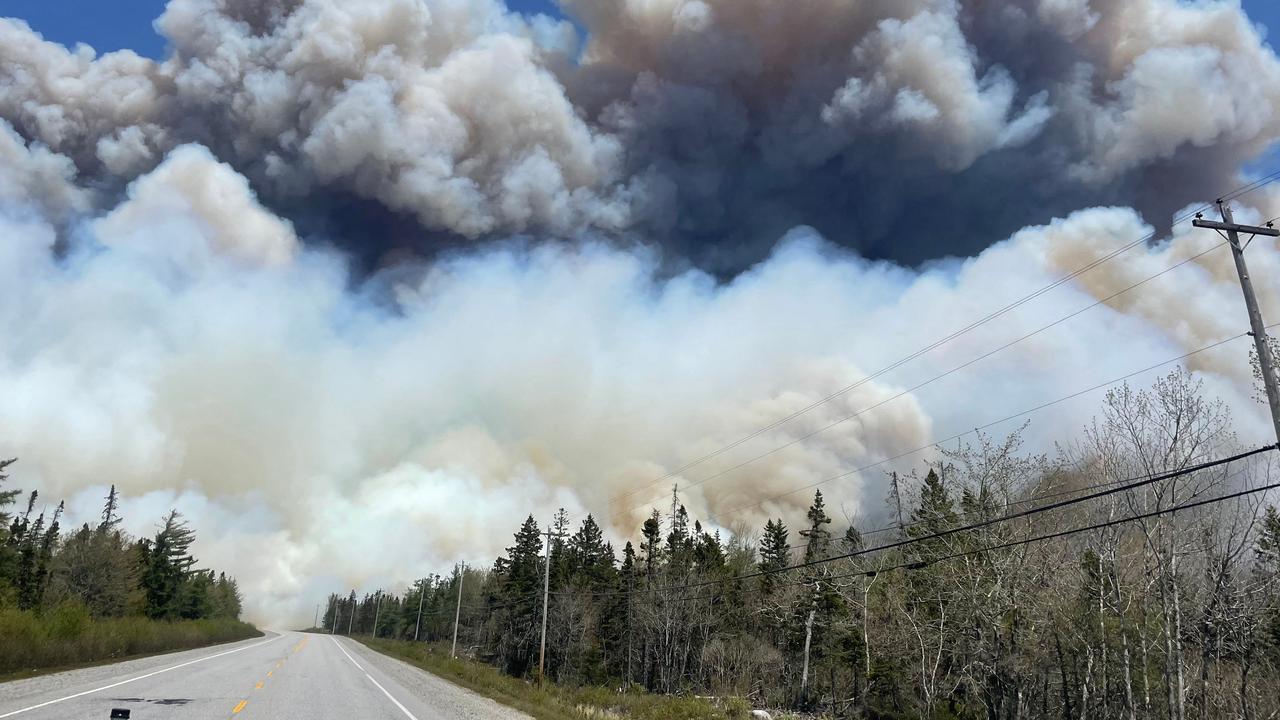Saturday, July 5, 2025
As forest fires rage across Nova Scotia, climate campaigners, ecologists and NGOs, including the Plant Based Treaty, are calling for the systemic issues fueling unprecedented fires across the world and exacerbating the climate crisis to be addressed.
Fires are being amplified by the climate crisis and deforestation, driven by logging and animal agriculture. Many see the need for a clear fire prevention strategy with reforesting and rewilding as one of the best opportunities to do that can start with a managed program to rewild pastureland, a strategy that would also reduce methane emissions.
Scientific evidence strongly suggests that deforestation, which is driven by ranching and animal feed crops, amplifies the risk of forest fires. The absence of trees alters local climates, reducing rainfall and leading to drier conditions. Cutting up forests with logging roads increases the risks of human interference starting these fires.
This area of the world typically sees a hundred or so hectares burned annually, but the multiple ongoing fires in Nova Scotia now total over 18,000 hectares, with almost a thousand hectares out of control in the suburbs of Halifax.
Halifax Mayor Mike Savage and Regional Council declared a local state of emergency in the communities affected by the fires, with multiple evacuation orders in effect. One Shelburne Nova Scotia hospital has been evacuated as the fires spread across the province. So far, the fires have resulted in more than 16,000 residents having to evacuate with very little notice, and hundreds of homes burned to the ground.
In response to the escalating climate emergency, the Plant Based Treaty, which has been endorsed by 21 cities worldwide, is calling for no new deforestation attributed to animal agriculture, the single largest driver of deforestation and land-use change worldwide.
Anita Krajnc, global campaign coordinator for Plant Based Treaty says, “We are calling for the media, educators, and policymakers to advocate for zero deforestation in production and consumption across Canada, as was recently legislated in the European Union along with comprehensive rewilding strategies in line with the Plant Based Treaty. These approaches can help sequester carbon dioxide, address methane emissions, and reduce future fire risks.”
How deforestation increases the risk of wildfires:
- When trees are removed, the shade they provide is lost, causing the forest floor to dry out. This creates an abundance of dry, combustible material that can easily ignite and fuel a fire.
- Trees play a vital role in the water cycle by releasing water vapor into the air and helping to maintain a humid microclimate. When they are removed, the local climate can become drier, again making it easier for fires to start and spread.
- The remaining fragmented patches of forest are more exposed to heat and wind, which can increase fire risk and help fires to spread more quickly when they do occur.
How climate change increases the risk of wildfires:
- Higher temperatures can lead to more frequent and prolonged periods of drought, creating drier conditions and making vegetation more susceptible to burning.
- A warmer climate can result in earlier snowmelt, leading to longer dry seasons.
- It alters weather patterns, potentially leading to more frequent and intense heat waves and storm events, both of which can contribute to increased fire risk.
The repercussions of the Nova Scotia wildfires extend far beyond local borders. Smoke and airborne particulates can travel significant distances, affecting air quality in major cities like Boston, New York, and Philadelphia. These cities are experiencing worsened air conditions, affecting those with respiratory issues and potentially leading to health advisories.
There are also mounting concerns about the fires’ impact on wildlife in the area with many wild animals losing their lives in the blaze.
Hope for Wildlife, a charitable wildlife rehabilitation and education organization located in Seaforth, Nova Scotia states on their Facebook page: “The impact of a wildfire extends far beyond the immediate destruction; the wildlife that manages to survive has lost everything, just like the people in our province who have lost their homes. Their habitats, sources of food, water, and shelter have all been decimated.”
The Plant Based Treaty is calling on the city of Halifax to discuss implementing the Plant Based Treaty or conducting an impact assessment to help mitigate the effects of the climate crisis, following cities such as Los Angeles, Edinburgh and 19 other cities across the world.
The Plant Based Treaty is modeled on the Fossil Fuel Non-Proliferation Treaty and inspired by treaties that have addressed the threats of ozone layer depletion and nuclear weapons. Since its launch in August 2021, the initiative has received support from almost 100,000 individual endorsers, 5 Nobel laureates, IPCC scientists, more than 3000 NGOs, community groups and businesses, including Odd Burger, VegTO, Climate Save Movement, Oceanic Preservation Society and chapters of Greenpeace, Friends of the Earth and Extinction Rebellion.

Nicholas Carter is a scientific advisor and ecologist working for the the Plant Based Treaty. He resides in Halifax, Nova Scotia, and previously co-led the launch of a climate adaptation hub in the region. He also co-created a scientific database calling for rewilding and food systems change.
Featured image credit: Nova Scotia government.











